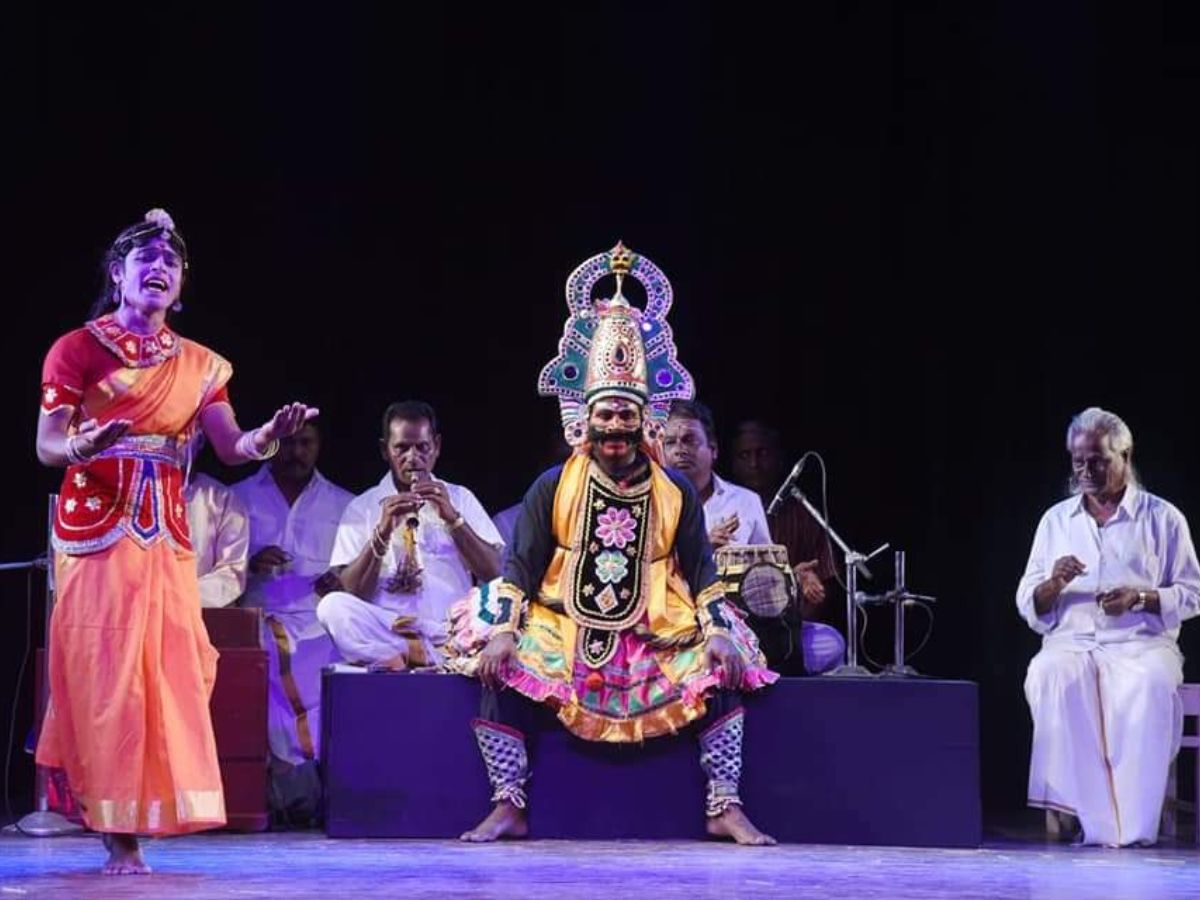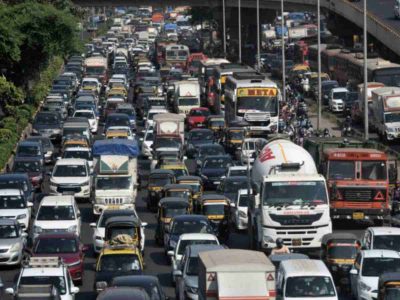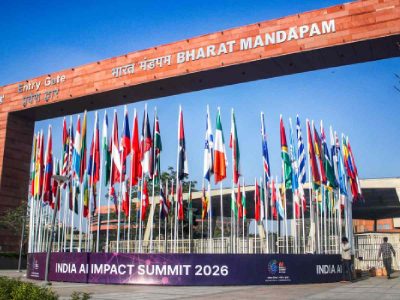On February 21, the eighth day of the 22nd Bharat Rang Mahotsav organised by National School Of Drama (NSD) saw long queues of people as actor Pankaj Tripathi and theatre director Ramanjeet Kaur attended the 2nd ‘Allied Events’, an interactive session between theatre and film personalities about their experiences in the industry.
The session was moderated by Praveen Gunjan and turned lively when the audience interacted with Tripathi. The theatre and film enthusiasts asked questions about his journey, advice for young actors, and the importance of imagination and observation in an actor’s life.
The session was supposed to be held at Open Air theatre, but shifted to Abhimanch Auditorium in NSD premises due to the scorching sun. While many people who could not attend the event complained about the unavailability of seats, the event was perhaps one of the most loved ones in the festival.
“I came here especially for Pankaj Tripathi. I love him and wanted to see him live. I wanted to learn how he talks and how he handles situations. I must say that the event was really good and interactive,” says Sunny, a theatre artist at the event.
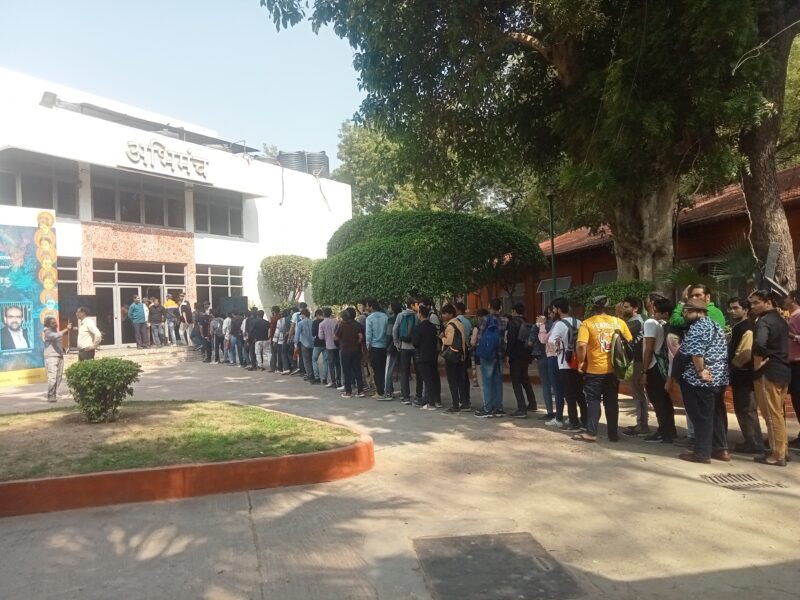
What made Bharat Rang Mahotsav special this year was that it was held in 10 cities — Delhi, Jaipur, Rajahmundry, Ranchi, Guwahati, Jammu, Srinagar, Bhopal, Nashik and Kevadia — with a total of 80 plays in 16 Indian languages. The 13-day Delhi edition (February 14 – February 23) saw multilingual plays alongside theatre workshops, book launches, and director meet-ups which were held a day after the play was performed in the festival.
Apart from Hindi and English, plays in regional languages such as Gujarati, Assamese, Malayalam, Manipuri, Marathi, among others, also became popular in the festival as many people who did not understand the language attended the play to know more about different theatre cultures and forms.
Kapil Kumar, a theatre artist who attended a Gujarati play Jasma Odan (Bhavai) directed by Pranjivan Babubhai Paija, says, “As a theatre actor, it was a one of a kind an experience as I got to know more about the artform. I did not understand the language, but that was not the point as I thoroughly enjoyed the play.”
The event was visited not only by connoisseurs and theatre enthusiasts but also people who were looking to spend quality time in the evening.
“We just came here because we had a three-day holiday and wanted to explore theatre. This is perhaps the best place to come for that. I do not know much about the artform, but being here made me feel that I would often want to visit such events,” says Sohail Khan, who works as an engineer.
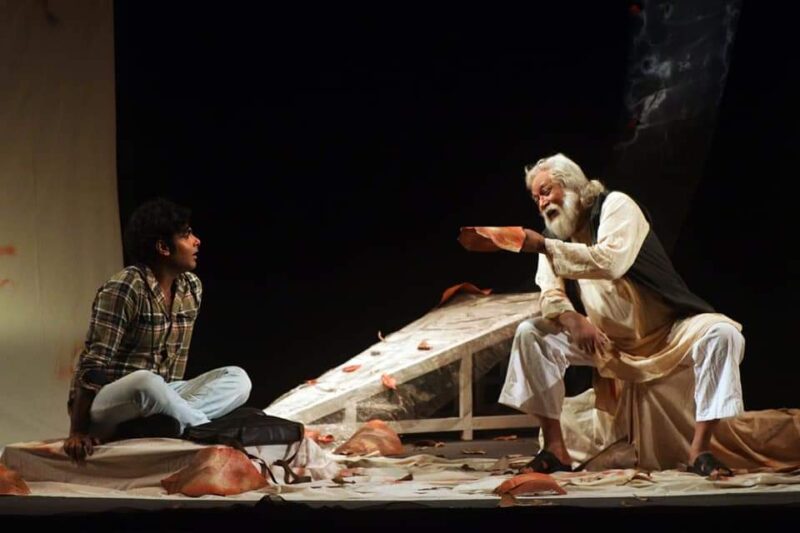
While the NSD premises looked almost vacant, as if the festival had not been received well, the three auditoriums were running full as people eager to enter waited outside. Performances were held at Shri Ram Centre, Little Theatre Group, Kamani Auditorium, and Open Air.
However, some people were upset by the lack of many activities in the festival. The food stall owner present at the campus said that he would receive many visitors in the other editions of the festival but now the response had been lukewarm.
“I have been putting my stall here for years. But this year, the response has been very low. Maybe it is because it is happening for the first time after the pandemic,” he says.
“The overall atmosphere looks very unenthusiastic. Even though there is a play going on in here right now, there is not much happening around. The plays may be good, but there is no festive vibe and this makes me a little sad,” says Rajesh Kumar, a resident of Uttam Nagar, who was watching a play in Open Air.
While the 21st edition of the festival had 10 international plays and the 20th edition had 15, the absence of international plays this year was felt at the festival.
However, Ramesh Chandra Gaur, director of NSD, told media that there are plans to organise an international segment of the festival during the G20 Summit. Officials at the festival also say that the international plays could not be picked up because the festival is happening for the first time after the pandemic.
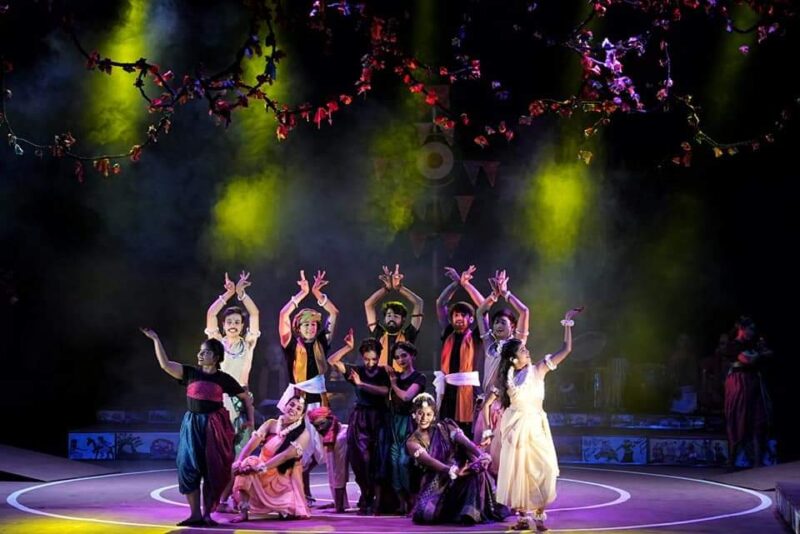
Of the 700 proposals received, more than 100 plays were selected for the festival, of which 80 plays were performed at different locations around the country. While Hindi plays such Jab We Separated directed by Rakesh Bedi, and musical play Inder Sabha by Amit Saxena were received well by the audience, folk performances were loved.
Ten folk plays which included Chakpa Makaho Ngambi (Manipuri) by Chongtham Gitchandra Singh, Barang Nibas Bhala Ranakhetrare (Odia and tribal language) by Natyashree Sudam Bisoy, Ram Bijai Angkia Natak (Brajawali) by Bhaben Barbyen, Maya Bandhoki (Bengali) by Sourav Roy, Jugi Triyao (Santhali) by Jitai Hansda, Iranya Samhaaram (Tamil) by PK Sambandan and Maharathi Karan (Marathi) by Dattprasad Shenai were performed.
Adaptations of famous western playwrights were given a regional flavour and were performed by many theatre groups in different languages.
The festival was inaugurated by the Minister of State for Parliamentary Affairs and Culture Arjun Ram Meghwal, along with Paresh Rawal, who is the NSD chairman, Ram Gopal Bajaj, former director of the institution, and CBFC board member Vani Tripathi Tikoo, as well as Ramesh Chandra Gaur. The opening play Jagannath was a 140-minute long Bengali drama directed by Arun Mukherjee.
The festival comes under the aegis of Azadi Ka Amrit Mahotsav and Festive Spirits of India’s G-20 Presidency.

